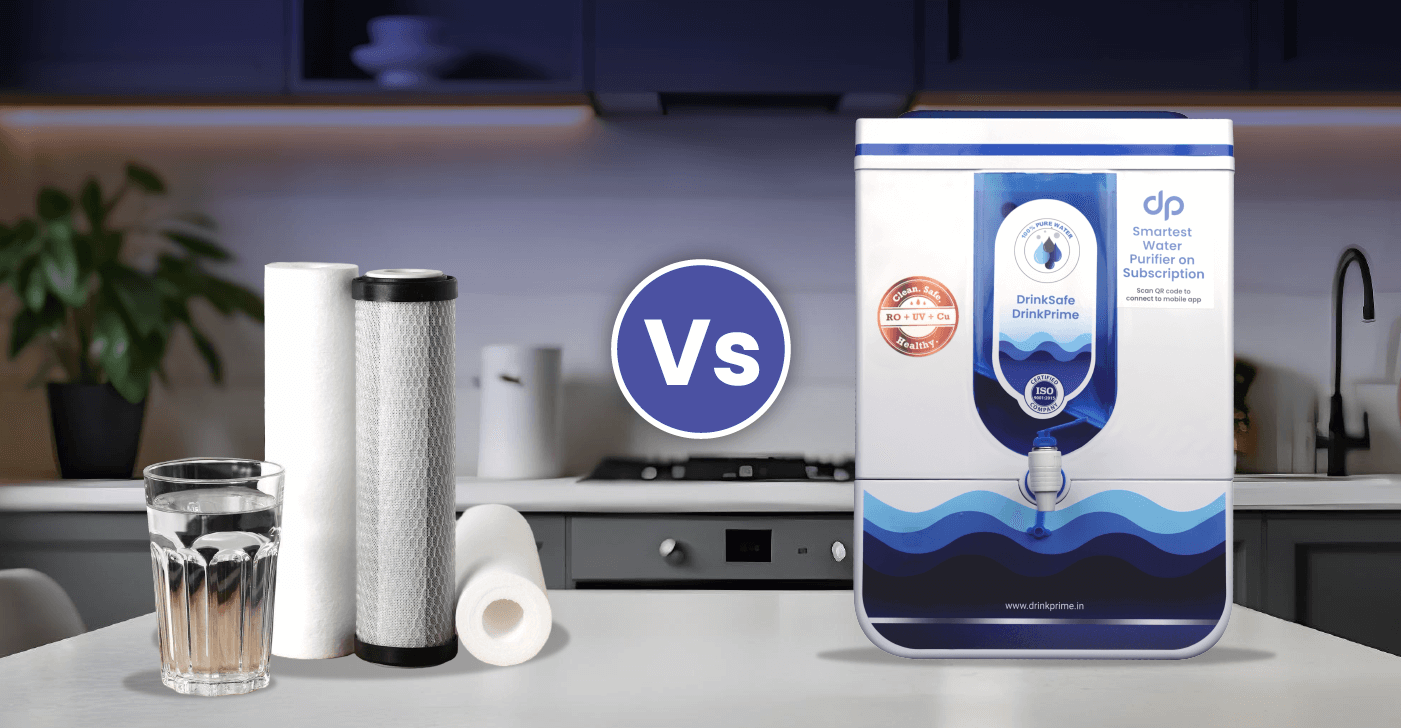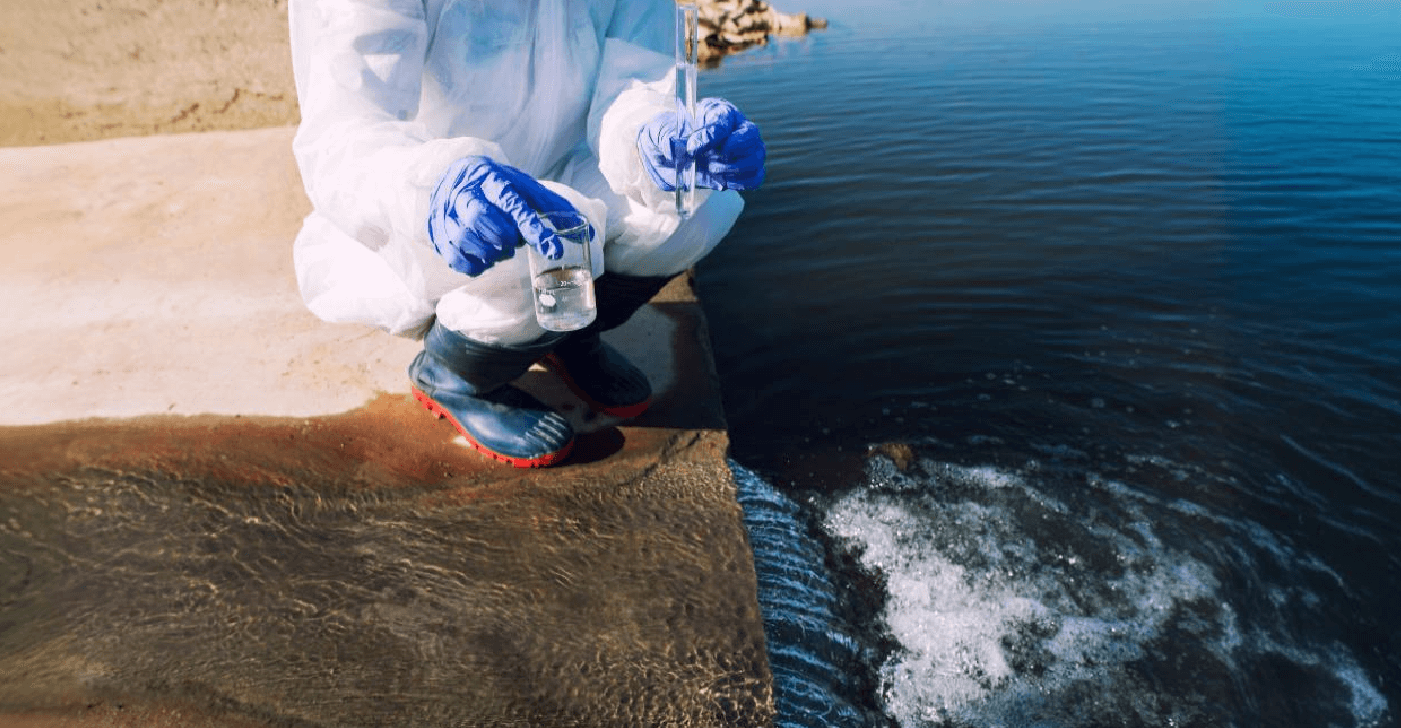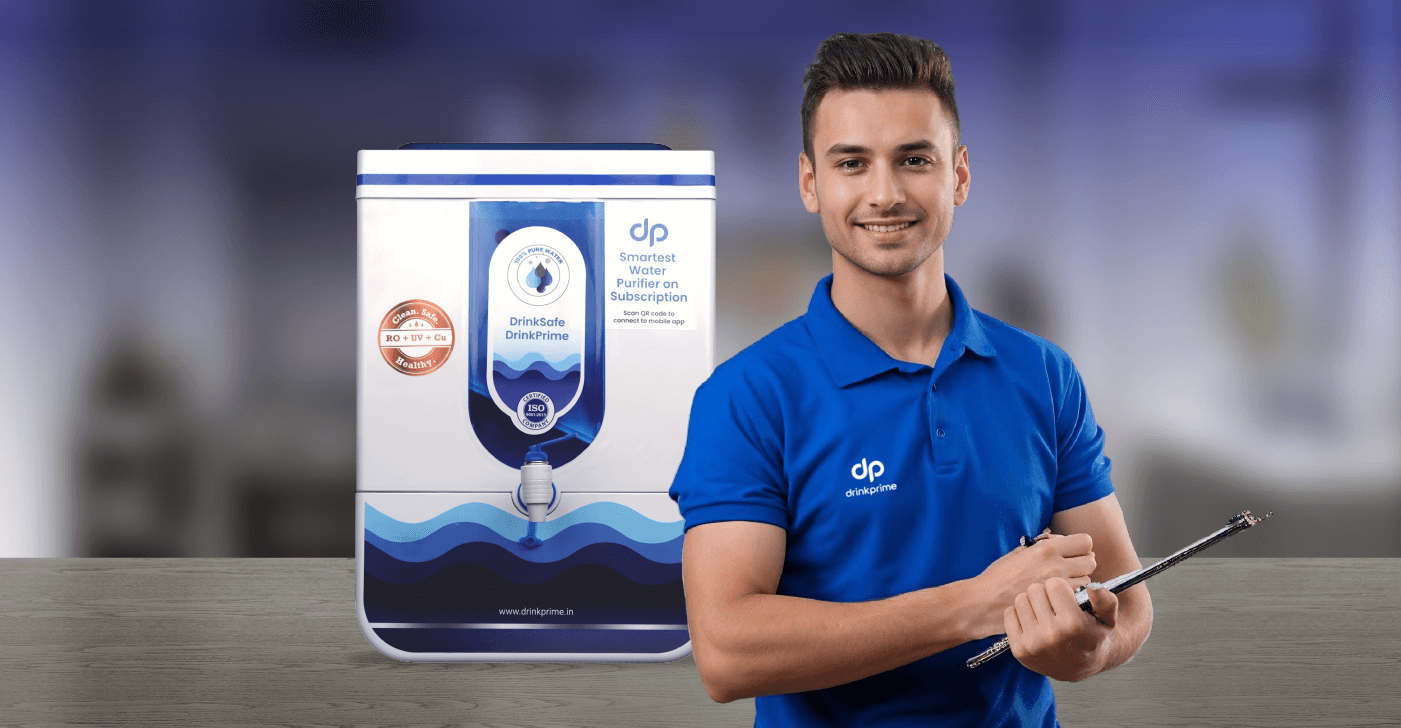Gone are the days when you could drink water out of the well or take a bucket to the lake and fill it up with water to be used for your chores. Apart from the fact that there are barely any lakes, the more concerning thing is that none of the natural water resources contain water that can be consumed directly by human beings. They’re all polluted! A survey shows that 70% of Indian water sources are contaminated. This is why it is important to filter the water we consume. But what is the difference between distilled water and purified water?
The two types are basically gotten by two different processes. To understand the difference between distilled water and purified water, let us first briefly understand their meanings, pros and cons.
What is Distilled Water?
Distilled water is generally produced by boiling water into steam and then condensing it back into liquid form. This process removes all the impurities, salts, and minerals, hence resulting in extremely pure water.
Pros of distilled water
Distillation removes nearly all the contaminants, including bacteria, viruses, and heavy metals, and all the dissolved solids. Distilled water is often used in labs and medicals because of its purity, and it is often used in labs and for medical metals and dissolved solids. Moreover, there is no use of chlorine or any other disinfectant during the distillation process.
Cons of Distilled water
When we talk about the cons of distilled water, the process of distillation may strip out some beneficial minerals like magnesium and calcium. Besides, without minerals, distilled water tastes bland or flat. Also, the boiling and condensation process consumes a lot of energy as well.
What is Purified Water?
Purified water refers to water that has been filtered or processed to remove impurities like chemicals, bacteria, and toxins. The purification can be done through methods such as Reverse Osmosis (RO), UV filtration, carbon filtering, or deionization.
Pros of Purified Water
Pros of purified water is that it effectively removes chlorine, heavy metals, and other microbial contaminants. Additionally, with some minerals retained, it improves the taste of the water. Moreover, with RO and UV filter technology, they are easily accessible for home use. Also, it has all the balanced mineral content that supports hydration and nutrient absorption.
Cons of Purified Water
Some purification systems like RO can remove all minerals unless remineralisation is added. Also, to keep water clean and safe, filters must be changed regularly. Moreover, the high-quality purification systems can have higher upfront costs or any subscription costs.
Distilled water vs Purified Water: Comparison Table
| Features | Distilled Water | Purified Water |
| Purity Levels | Distilled water purity level is extremely pure. | When we compare purified water, the purity levels are very pure, but may retain some mineral content |
| Mineral Content | None | May retain in some or be re-added |
| Taste | Distilled water tastes bland or flat | Purified water generally tastes better |
| Usage | Distilled water can be used for lab work or medical use | Purified Water is used for daily consumption, for cooking etc. |
| Processing Methods | Distilled water is boiled and condensed | Purifed water comprises of RO, UV lamp, and carbon filters |
| Cost | Distilled water costs high due to energy use | Purified water depends on the purification systems, or brand |
| Purification Techniques | Distillation involves boiling the water to produce steam, which is then cooled and condensed back into liquid form. | Purification usually involves a multi-stage process, including reverse osmosis (RO) to remove dissolved salts and heavy metals, ultraviolet (UV) purification to kill bacteria and viruses, and activated carbon filtration to eliminate chlorine, odors, and organic compounds |
Which One is Better for You?
So, if you are a lab technician and working with medical tools or need ultra-pure water for appliances like steam irons, then distilled water is your best choice. But if you are someone who is looking for water to drink daily, cook with, and hydrate your family, then purified water wins. It provides a better balance between safety and health benefits.
Why DrinkPrime?
DrinkPrime offers a subscription-based water purifier that makes use of RO, UV lamps, and activated carbon filters, making sure the water you drink is free from all the harmful chemicals. while retaining some essential minerals. Moreover, you get high-quality purified water without the hassle of ownership, servicing, or upfront costs. So, whether you live in a city with inconsistent water quality or just want a convenient way to make sure your family gets clean, safe, healthy drinking water, then DrinkPrime is an ideal choice to make it.
Final Thoughts
In conclusion, both distilled water and purified water have their pros and cons, but for most households, purified water is the way to go. It combines safety, taste, and mineral content in a way that supports your health and lifestyle. And if you’re looking for a reliable, hassle-free way to get purified water at home, DrinkPrime is a solution worth considering.
Because at the end of the day, clean water isn’t a luxury—it’s a basic right. And thanks to modern purification solutions, getting access to it has never been easier.




